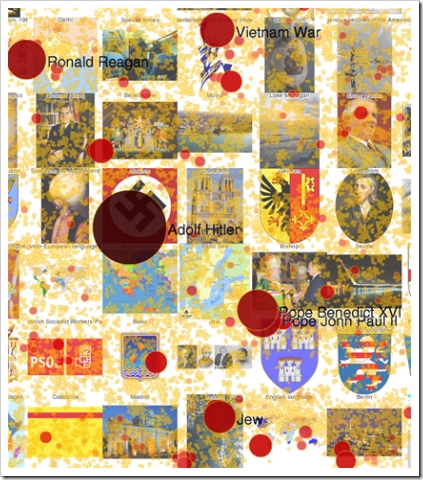I’m perpetually irritated by the ludicrous legalese that organisations force employees to tag onto the end of email messages. Here’s a typical example:
This e-mail and all attachments are confidential and may also be privileged. If you are not the named recipient, please notify the sender and delete the e-mail and all attachments immediately. Do not disclose the contents to another person. You may not use the information for any purpose, or store, or copy, it in any way.
Up to now, my standard reaction has been to mutter “Oh Yeah! You and whose army?” But I’ve just noticed that Cory Doctorow, Whom God Preserve, has had a better idea. He has decided that ridicule is the best defence against this nonsense. His boilerplate legalese reads:
READ CAREFULLY. By reading this email, you agree, on behalf of your employer, to release me from all obligations and waivers arising from any and all NON-NEGOTIATED agreements, licenses, terms-of-service, shrinkwrap, clickwrap, browsewrap, confidentiality, non-disclosure, non-compete and acceptable use policies (“BOGUS AGREEMENTS”) that I have entered into with your employer, its partners, licensors, agents and assigns, in perpetuity, without prejudice to my ongoing rights and privileges. You further represent that you have the authority to release me from any BOGUS AGREEMENTS on behalf of your employer.
I’m going to add this to my email signature options so that anyone who signs off with legalese will have the compliment returned, in spades.
Later: Hmmm… I’ve obviously touched a chord here. Lovely email from James Cridland pointing me to his personal legalese:
Terms and conditions of receipt of email
These terms and conditions apply to emails sent to the above email addresses or any containing ‘james’ before the @ sign and ‘cridland.net’ after the @ sign. Unsolicited email is herein defined as email which is not the result of demonstrable prior contact using or quoting such an address. No guarantee of confidentiality is given, or honoured, on receipt of unsolicited email, irrespective of any terms and conditions block contained therein. It is illegal to send EU citizens unsolicited commercial email without the users’ explicit (opt-in) permission, according to The Directive on Privacy and Electronic Communications (2002/58/EC). This site owner reports all such mail direct to your ISP.
That’s the stuff! I feel better already.

